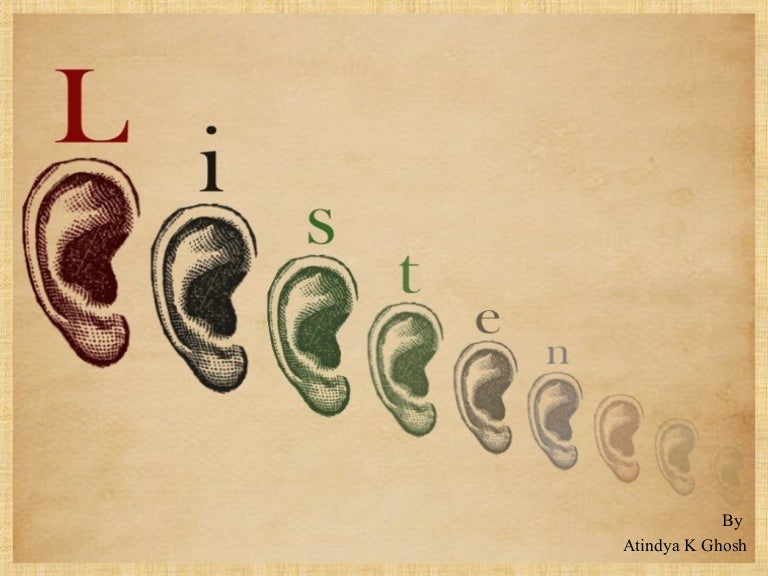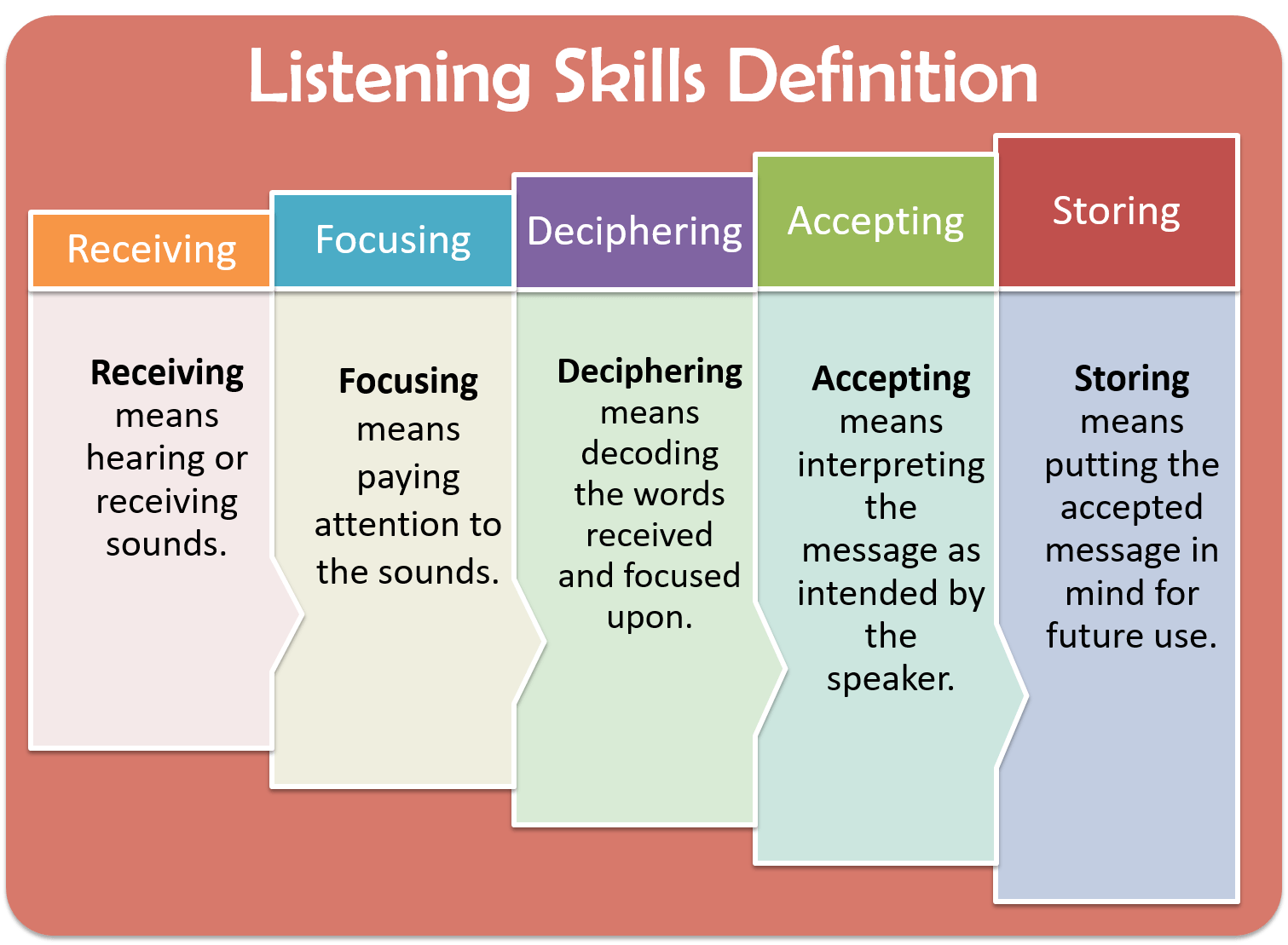
If someone speaks to them in a happy and amused tone of voice, they’ll smile and laugh back. Instead of relying on words, discriminative listening uses tone of voice, verbal cues, and other changes in sound.ĭiscriminative listening is how babies understand the intention of a phrase before they can understand words.
#Listening skills how to
You use this type of listening before you even know how to understand words. Discriminative listeningĭiscriminative listening is the first listening type that you’re born with.Įveryone innately has discriminative listening skills. You can also feel more fulfilled when you pursue your passions and learn something new at home. By actively learning and improving yourself, you can become a more valuable asset in your place of work. When you know how to use informational listening, you empower yourself to become a better learner. Some examples of informational listening include: This is so you can understand what you’re learning within the context of relevant information. You also need to apply critical thinking to what you are learning. That’s because you need to be highly engaged to understand a new concept. It usually takes a high level of concentration to perform this type of listening. When you want to learn something, you’ll use informational listening to understand and retain information. Let’s explore seven of these types of listening, why they matter, and what they can look like: 1. There are several types of listening you can develop both at home and at work. Afterwards, the other participants need to paraphrase what they think the other person said. During this time, no other participants may speak. The other participants need to write down what they believe the other person feels.įinally, you can practice active listening by having all participants listen to one person speak for three to five minutes. In another game, participants need to mime non-verbal cues to express their feelings about a topic.

The second participant needs to ask questions in order to accurately draw the image the first participant is holding. The first person in each group is given a picture, while the other person is given a pen and paper. In one such game, you and your colleagues can split up into groups of two. You can improve team communication with active listening games. Without attentive listening, it can be easy to miss small details that make a difference in your learning. Listening is also crucial if you want to learn effectively.

Plus, when you actively listen, your colleagues and your superiors will notice that you come up with meaningful responses. You can avoid this if everyone actively listens to each other. Not everyone will get the same understanding of the same conversation. Some people will be more engaged than others. The same can happen if everyone on the team uses different levels of listening.

Information gets lost, and misunderstandings occur. Imagine trying to collaborate if you can’t actively listen to your colleagues. Listening is also important for productive collaboration.Īccording to the same LinkedIn report, collaboration is the third most important soft skill companies need. According to LinkedIn's 2019 Global Talent Trends report, 80% of companies say that soft skills are increasingly important to their success. This is something you might not have done without active listening.Īt work, communication is an important soft skill. If something isn’t clear, you can ask clarifying questions. You can pick up on subtleties you wouldn’t have otherwise, especially with body language. That’s because it allows you to come up with a substantial and meaningful response. Listening is the most important part of communication. On the other hand, when you actively listen, you can fully communicate with someone else. Without listening, it's easy to get something wrong and make assumptions. Regardless of the type, listening is key to understanding what other people are really trying to say.

Listening is a key component of effective communication skills. Why is listening so important in life and at work?


 0 kommentar(er)
0 kommentar(er)
